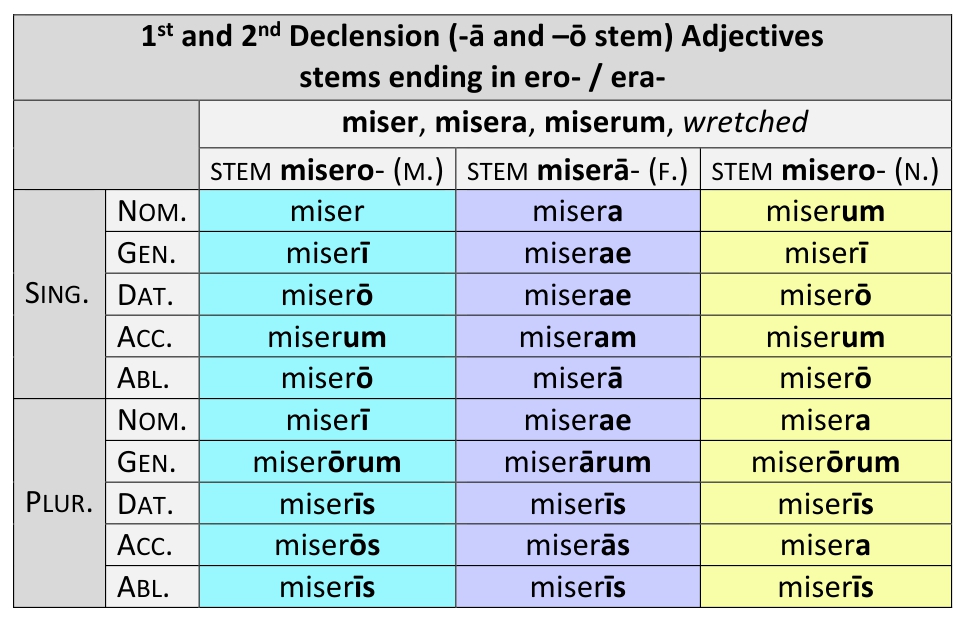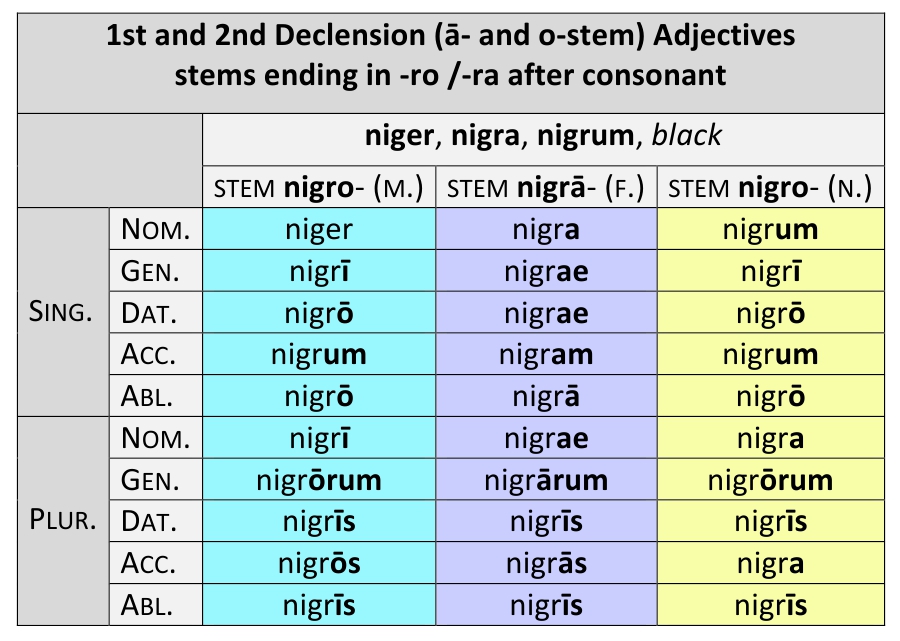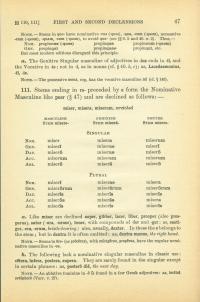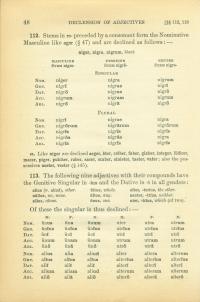111. Stems ending in ro- preceded by e form the Nominative masculine like puer (§ 47) and are declined as follows.
a. The following are declined like miser:
Asper, gibber, lacer, liber, prosper (also prosperus), satur (-ura, -urum), tener
with compounds of -fer and -ger:
saetiger, -era, -erum bristle-bearing
also, ususally, dexter. In these the e belongs to the stem; but in dextra it is often omitted: dextra manus the right hand.
Note— Stems in ēro- (as prōcērus), with mōrigĕrus, propĕrus, have the regular nominative masculine in -us
b. The following lack a nominative singular masculine in the classic use.
cetera, infers, posters, super
They are rarely found in the singular except in certain phrases.
poster die the next day
Note— An Ablative feminine in -ō is found in a few Greek adjectives: lectīcā octōphorō (Verr. 5.27)
112. Stems in ro- preceded by a consonant form the nominative masculine like ager (§ 47) and are declined as follows.
a. The following ar declined like niger:
aeger, āter, crēber, faber, glaber, integer, lūdicer, macer, piger, pulcher, ruber, sacer, scaber, sinister, taeter, vafer
also the possesives, noster, vester (§ 145).




